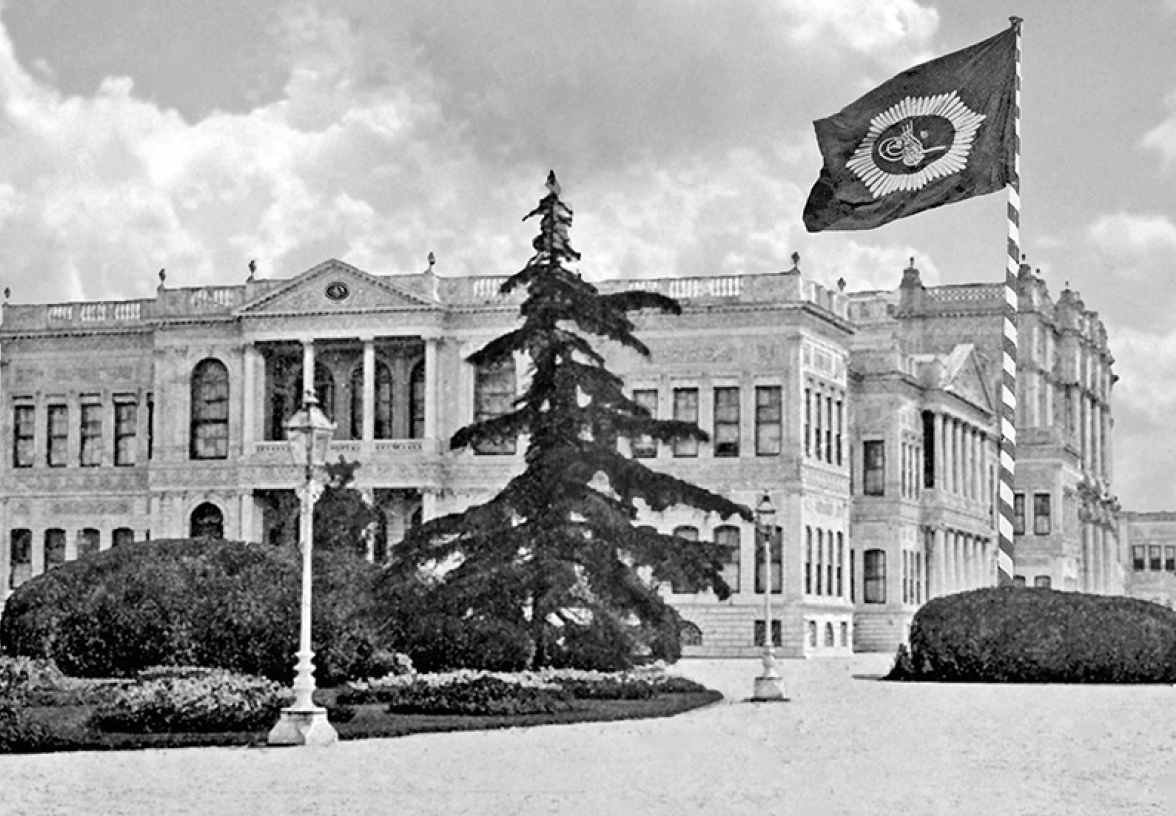Douglas Scott Brookes - On the Sultan’s Service
Here you can read online Douglas Scott Brookes - On the Sultan’s Service full text of the book (entire story) in english for free. Download pdf and epub, get meaning, cover and reviews about this ebook. year: 2019, publisher: Indiana University Press, genre: Detective and thriller. Description of the work, (preface) as well as reviews are available. Best literature library LitArk.com created for fans of good reading and offers a wide selection of genres:
Romance novel
Science fiction
Adventure
Detective
Science
History
Home and family
Prose
Art
Politics
Computer
Non-fiction
Religion
Business
Children
Humor
Choose a favorite category and find really read worthwhile books. Enjoy immersion in the world of imagination, feel the emotions of the characters or learn something new for yourself, make an fascinating discovery.
- Book:On the Sultan’s Service
- Author:
- Publisher:Indiana University Press
- Genre:
- Year:2019
- Rating:3 / 5
- Favourites:Add to favourites
- Your mark:
- 60
- 1
- 2
- 3
- 4
- 5
On the Sultan’s Service: summary, description and annotation
We offer to read an annotation, description, summary or preface (depends on what the author of the book "On the Sultan’s Service" wrote himself). If you haven't found the necessary information about the book — write in the comments, we will try to find it.
On the Sultan’s Service — read online for free the complete book (whole text) full work
Below is the text of the book, divided by pages. System saving the place of the last page read, allows you to conveniently read the book "On the Sultan’s Service" online for free, without having to search again every time where you left off. Put a bookmark, and you can go to the page where you finished reading at any time.
Font size:
Interval:
Bookmark:
Table of Contents



Frontis. The entrance into the mabeyin at Dolmabahe Palace, under the imperial standard of Sultan Mehmed V. ehbal, 14 October 1909 and 28 April 1912.

This book is a publication of
Indiana University Press
Office of Scholarly Publishing
Herman B Wells Library 350
1320 East 10th Street
Bloomington, Indiana 47405 USA
iupress.indiana.edu
2019 by Douglas Scott Brookes
All rights reserved
No part of this book may be reproduced or utilized in any form or by any means, electronic or mechanical, including photocopying and recording, or by any information storage and retrieval system, without permission in writing from the publisher. The paper used in this publication meets the minimum requirements of the American National Standard for Information SciencesPermanence of Paper for Printed Library Materials, ANSI Z39.48-1992.
Manufactured in the United States of America
Names: Uaklgil, Halit Ziya, 1869-1945, author. | Brookes, Douglas Scott, [date] translator, editor.
Title: On the sultans service: Halid Ziya Uaklgils memoir of the Ottoman palace, 1909-1912 / translated and edited by Douglas Scott Brookes.
Other titles: Halid Ziya Uaklgils memoir of the Ottoman palace, 1909-1912
Description: Bloomington, Indiana: Indiana University Press, 2019. | Includes bibliographical references and index.
Identifiers: LCCN 2019020820 (print) | ISBN 9780253045539 (e-book) | ISBN 9780253045508 (hardback: alk. paper) | ISBN 9780253045515 (pbk.: alk. paper)
Subjects: LCSH: Uaklgil, Halit Ziya, 1869-1945. | Authors, Turkish20th centuryBiography. | TurkeyHistoryMehmed V, 1909-1918. | TurkeyCourt and courtiers.
Classification: LCC DR583 .U83 2019 (print) | LCC DR583 (ebook) | DDC 956/.02092 [B]dc23
LC record available at https://lccn.loc.gov/2019020820
LC ebook record available at https://lccn.loc.gov/2019981141
1 2 3 4 5 24 23 22 21 20 19
To the most cultured of gentlemen,
Halid Ziya Bey
Kandilli temenna ile
They placed the nightingale in a cage of gold,
but still it cried, Oh my homeland, my homeland.
Turkish proverb
Contents

I am delighted to welcome this book, which, at long last, reveals to the world a work long known and treasured in Turkey: our famed novelist Halid Ziya Uaklgils wonderful memoir of his life in the service of the Ottoman sultanate during the heady days after the 1909 coup, which culminated in the Young Turks movement grasping power.
The events of the years 1909 to 1912 are of course a matter of historical record, but what makes Halid Ziyas memoir exceptional is his talent for painting a rich palette of emotion and detail that brings to life the people who lived and worked in the palace.
For Halid Ziya, Dolmabahe Palace was his workplace and a symbol of changing times as the Ottoman State negotiated the transition to constitutional monarchy, which only lasted for thirteen years. Nowadays it is one of Turkeys great museums, conserved by the Department of National Palaces, and one of the jewels of Istanbul for visitors from around the world.
However, for me, it is akin to a family home. My dear mother was born here in the reign of her grandfather, Sultan Mehmed V Read, during which time Halid Ziya served as first secretary, and here she spent the early years of her life. The sultans youngest son, Prince mer Hilmi, whom Halid Ziya describes, was my grandfather, whom unfortunately I never knew because he passed away prematurely at the age of forty-nine. As for the other princes and princesses in the book, they are my uncles and aunts, whom I have known, or known of, throughout my life.
And so, with wishes for pleasant reading, I invite the reader to join Halid Ziya as he takes up his duties in the Palace Chancery, serving my great-grandfather during a short period of peace, followed by the Tripolitanian War and the Balkan Wars.
HIH Prince Osman Selaheddin Osmanolu
Istanbul, September 2019
As the throngs of sightseers make their way through Istanbuls magnificent Dolmabahe Palace, typically they marvel at the famed crystal staircases, the opulent mirrors and carpets and drapes entirely at home in a Victorian villa, and the soaring heights of the State Hall, arguably the most spectacular room in any palace anywhere. Few will stop to think that this sumptuous seat of royalty, designed to dazzle and delight with the splendor of the Ottoman monarchy, was also an office.
That office was the Court Chancery, the southern wing of Dolmabahe Palace as one views it from the Bosphorus. This book tells the chancerys story. Or more precisely, and more interestingly, it tells the story of the men who staffed the Ottoman Imperial Chancery during three tumultuous years of its six-hundred-year history.
Palace of the Filled Garden
Commissioned in the 1840s by Sultan Abdlmecid, Dolmabahe (Filled-in Garden, from its having been built on landfill along the Bosphorus) satisfied the need for a modern edifice to replace old-fashioned Topkap Palace as the primary seat of the Ottoman monarchy. Far and away the most famous work of Garabed Balian, the prolific Armenian architect in service to the Ottoman court in the nineteenth century, the building not only gave the sultan the new home he wanted, in its break with Topkap it also symbolically declared the monarchys wholehearted embrace of the modernizing reforms introduced since the 1820s.
Mr. Balians new building comprises three sectionschancery, State Hall, and haremthat met the threefold needs of the palace for offices, state rooms, and living quarters. The chancery wing was, and still is, Dolmabahes front door, as everyone approaching the palace on state business would need the chancery, because it oversaw palace operations. The location of this wing, midway between the private world of the harem and the world at large outside the palace, gave it its Turkish name, mabeyin, from the Arabic term that means what lies in between. In this translation, mabeyin and its English equivalent, chancery, are used interchangeably.
In the middle of the building, the spectacular State Hall occupies the intermediary zone between the palaces public spaces (mabeyin) on one side and private spaces (harem) on the other. Conceived as an opulent stage for grand occasions, well-nigh overwhelming the visitor with crystal, marble, and one of the worlds largest chandeliers, it too is a public space, although just for those invited to the ceremonies it hosted. Its Turkish name of Muayede Salonu, Holiday Greetings Hall, reflects its use for the grandest annual event in the royal calendar, the reception for high dignitaries on the holidays that follow the holy month of Ramadan.

Fig. 0.2. Sprawling Dolmabahe Palace along the Bosphorus.
Next pageFont size:
Interval:
Bookmark:
Similar books «On the Sultan’s Service»
Look at similar books to On the Sultan’s Service. We have selected literature similar in name and meaning in the hope of providing readers with more options to find new, interesting, not yet read works.
Discussion, reviews of the book On the Sultan’s Service and just readers' own opinions. Leave your comments, write what you think about the work, its meaning or the main characters. Specify what exactly you liked and what you didn't like, and why you think so.













